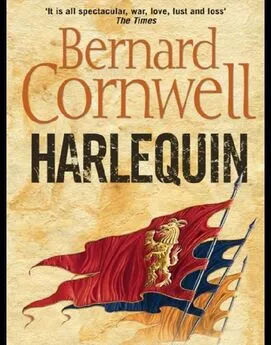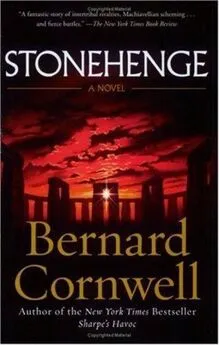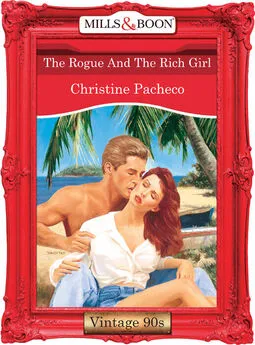Bernard Cornwell - The Grail Quest 2 - Vagabond
- Название:The Grail Quest 2 - Vagabond
- Автор:
- Жанр:
- Издательство:неизвестно
- Год:неизвестен
- ISBN:нет данных
- Рейтинг:
- Избранное:Добавить в избранное
-
Отзывы:
-
Ваша оценка:
Bernard Cornwell - The Grail Quest 2 - Vagabond краткое содержание
In Harlequin, Thomas of Hookton travelled to France as an archer and there discovered a shadowy destiny, which linked him to a family of heretical French lords who sought Christendom′s greatest relic.
Having survived the battle of Crécy, Thomas is sent back to England, charged with finding the Holy Grail. But Thomas is an archer and when a chance comes to fight against an army invading northern England he jumps at it. Plunged into the carnage of Neville′s Cross, he is oblivious to other enemies who want to destroy him. He discovers too late that he is not the only person pursuing the grail, and that his rivals will do anything to thwart him.
After hunting and wounding him, Thomas′s enemies turn him into a fugitive. Fleeing England, he travels to Normandy, determined to rescue Will Skeat, his old commander from Harlequin. Finally Thomas leads his enemies back to Brittany, where he goes to discover an old love and where his pursuers at last trap their reluctant pilgrim.
Vagabond is a vivid and realistic portrait of England at a time when the archer was king of Europe′s battlefields.
The Grail Quest 2 - Vagabond - читать онлайн бесплатно ознакомительный отрывок
Интервал:
Закладка:
'Did he talk of the Grail?' the King asked, and the Bishop of Durham had answered that there was one man left in his diocese who might know, an old monk called Hugh Collimore who had nursed the mad Ralph Vexille, Thomas's father. The King might have dismissed the tales as so much churchly gossip had not Thomas recovered his father's heritage, the lance of St George, in the battle that had left so many dead on the green slope above the village of Crecy. The battle had also left Thomas's friend and commander Sir William Skeat wounded and he wanted to take Skeat to the doctor in Normandy, but the King had insisted that Thomas go to Durham and speak with Brother Collimore. So Eleanor's father had taken Sir William Skeat to Caen and Thomas, Eleanor and Father Hobbe had accompanied a royal chaplain and a knight of King Edward's household to England, but in London the chaplain and the knight had both fallen sick with an early winter fever and so Thomas and his companions had travel-led north alone and now they were close to Durham, on a foggy morning, listening to the cathedral's bells. Eleanor, like Father Hobbe, was excited for she believed that discovering the Grail would bring peace and justice to a world that stank of burned cottages. There would be no more sorrow, Eleanor thought, and no more war, and perhaps even no more sickness. Thomas wanted to believe it. He wanted his night vision to be real, not flame and smoke, vet if the Grail existed at all he thought that it would be in some great cathedral, guarded by angels. Or else it was gone from this world, and if there was no Grail on earth then Thomas's faith was in a war bow made of Italian yew, painted black, strung with hemp, that drove an arrow made of ash, fledged with goose feathers and tipped with steel. On the bow's belly, where his left hand gripped the yew, there was a silver plate engraved with a yale, a fabulous beast of claws and horns and tusks and scales that was the badge of his father's family, the
Vexilles. The vale held a cup and Thomas had been told it was the Grail. Always the Grail. It beckoned him, mocked him, bent his life, changed all, yet never appeared except in a dream of fire. It was mystery, just as Thomas's family was a mystery, but perhaps Brother Collimore could cast light on that mystery and so Thomas had come north. He might not learn of the Grail, but he expected to discover more about his family and that, at least, made the journey worthwhile.
'Which way?' Father Hobbe asked.
'God knows,' Thomas said. Fog shrouded the land.
'The bells sounded that way.' Father Hobbe pointed north and east. He was energetic, full of enthusiasm, and naively trusting in Thomas's sense of direction, though in truth Thomas did not know where he was. Earlier they had come to a fork in the road and he had randomly taken the left-hand track that now faded to a mere scar on the grass as it climbed. Mushrooms grew in the pasture, which was wet and heavy with dew so that their horse slipped as it climbed. The horse was Thomas's mare and it was carrying their small baggage and in one of the sacks hanging from the saddle's pommel was a letter from the Bishop of Durham to John Fossor, the Prior of Durham. 'Most beloved brother in Christ,' the letter began, and went on to instruct Fossor to allow Thomas of Hookton and his companions to question Brother Collimore concerning Father Ralph Vexille,
'whom you will not remember for he was kept closed up in your house before you came to Durham, indeed before I came to the See, but there will be some who know of him and Brother Collimore, if it pleases God that he yet lives, will have certain knowledge of him and of the great treasure that he concealed. We request this in the name of the King and in the service of Almighty God who has blessed our arms in this present endeavour.'
'Qu'est-ce que c'est?' Eleanor asked, pointing up the hill where a dull reddish glow discoloured the fog.
'What?' Father Hobbe, the only one who did not speak French, asked.
'Quiet,' Thomas warned him, holding up his hand. He could smell burning and see the flicker of flames, but there were no voices. He took his bow from where it hung from the saddle and he strung it, bending the huge stave to loop the hemp string over the piece of nocked horn. He pulled an arrow from the bag and then, motioning Eleanor and Father Hobbe to stay where they were, he edged up the track to the shelter of a deep hedge where larks and finches flitted through the dying leaves. The fires were roaring, suggesting they were newly set. He crept closer, the bow half drawn, until he could see there had been three or four cottages about a crossroads and their rafters and thatch were well ablaze and sending sparks whirling up into the damp grey. The fires looked recent, but there was no one in sight: no enemy, no men in mail, so he beckoned Eleanor and Father Hobbe forward and then, over the sound of the fire, he heard a scream. It was far off, or perhaps it was close but muffled by fog, and Thomas stared through the smoke and the fog and past the seething flames and suddenly two men in mail, both mounted on black stallions, cantered into view. The horsemen had black hats, black boots and black scabbarded swords and they were escorting two other men who were on foot. One was a priest, a Dominican judging by his black and white garb, and he had a bloodied face, while the other man was tall, dressed in mail, and had long black hair and a narrow, intelligent face. The two followed the horsemen through the smoky fog, then paused at the crossroads where the priest dropped to his knees and made the sign of the cross. The leading horseman seemed irritated by the priest's prayer for he turned his horse back and, drawing his sword, prodded the blade at the kneeling man. The priest looked up and, to Thomas's astonishment, suddenly rammed his staff up into the stallion's throat. The beast twitched away and the priest slammed the staff hard at the rider's sword arm. The horseman, unbalanced by his stallion's jerking motion, tried to cut down across his body with his long blade. The second horse-man was already unsaddled, though Thomas had not seen him fall, and the black-haired man in mail was astride his body with a long knife drawn. Thomas just stared in puzzlement for he was convinced that neither the two horsemen nor the priest nor the black-haired man had uttered the scream, vet no other folk were in sight. One of the two horsemen was already dead and the other now fought the priest in silence and Thomas had a sense that the conflict was unreal, that he was dreaming, that in truth this was a morality play in dumb show: the black-clad horseman was the devil and the priest was God's will and Thomas's doubts about the Grail were about to be resolved by whoever won and then Father Hobbe seized the great bow from Thomas. 'We must help!'
Yet the priest hardly needed help. He used the staff like a sword, parrying his opponent's cut, lunging hard to bruise the rider's ribs, then the man with the long black hair rammed a sword up into the horseman's back
and the man arched, shivered, and his own sword dropped. He stared down at the priest for a moment, then he fell backwards from his saddle. His feet were momentarily trapped in the stirrups and the horse, panicking, galloped uphill. The killer wiped the blade of his sword, then took a scabbard from one of the dead men. The priest had run to secure the other horse and now, sensing he was being watched, he turned to see two men and a woman in the fog. One of the men was a priest who had an arrow on a bowstring. 'They were going to kill me!' Bernard de Taillebourg protested in French. The black-haired man turned fast, the sword rising in threat.
'It's all right,' Thomas said to Father Hobbe and he took the black bow away from his friend and hung it on his shoulder. God had spoken, the priest had won the fight and Thomas was reminded of his night vision when the Grail had loomed in the clouds like a cup of fire. Then he saw that under the bruises and blood the strange priest's face was hard and lean, a martyr's face, with the look of a man who had hungered for God and achieved an evident saintliness and Thomas almost fell to his knees. 'Who are you?' he called to the Dominican.
'I am a messenger.' Bernard de Taillebourg snatched at any explanation to cover his confusion. He had escaped from his Scottish escort and now he wondered how he was to escape from the tall young man with the long black bow, but then a flight of arrows hissed from the south and one thumped into a nearby elm trunk while a second skidded along the wet grass, and a horse shrieked nearby and men were shouting in dis-order. Father de Taillebourg called to his servant to catch the second horse, which was trotting uphill and, by the time it was caught, de Taillebourg saw that the stranger with the bow had forgotten him and was staring south to where the arrows flew. So he turned towards the city, called his servant to follow him and kicked back his heels.
For God, for France, for St Denis and for the Grail.
Sir William Douglas cursed. Arrows were hissing all about him. Horses were screaming and men were lying dead or injured on the grass. For a heartbeat he felt bewildered, then he realized that his forage party had blundered into an English force, but what kind of force? There was no English army nearby! The whole English army was in France, not here! Which meant, surely, that the citizens of Durham had broken their truce and that thought filled Sir William with a terrible anger. Christ, he thought, but there would not be one stone left on another when he had finished with the city, and he tugged the big shield to cover his body and spurred south towards the bowmen who were lining a low hedge. He reckoned there were not so many of them, maybe only fifty, and he still had nearly two hundred men mounted and so he roared the order to charge. Swords scraped from scabbards. 'Kill the bastards!' Sir William shouted. 'Kill them!' He was savaging his horse with his spurs and thrusting other confused horsemen aside in his eagerness to reach the hedge. He knew the charge would be ragged, knew some of his men must die, but once they were over the blackthorn and in among the bastards they would kill them all.
Bloody archers, he thought. He hated archers. He especially hated English archers and he detested traitorous, truce-breaking Durham archers above all others. 'On! On!' he shouted. 'Douglas! Douglas!' He liked to let his enemies know who was killing them, and who would be raping their wives when they were dead. If the city had broken the truce, then God help that city for he would sack, rape and burn the whole of it. He would fire the houses, plough the ashes and leave the bones of its citizens to the winter blight, and for years men would see the bare stones of the ruined cathedral and watch the birds nesting in the castle's empty towers and they would know that the Knight of Liddesdale had worked his revenge.
'Douglas!' he shouted, 'Douglas!' and he felt the thump of arrows smacking into his shield and then his horse screamed and he knew more arrows must have driven deep into its chest for he could feel the beast stumbling. He kicked his feet from the stirrups as the horse slewed sideways. Men charged past him, scream-ing defiance, then Sir William threw himself out of the saddle and onto his shield that slid along the wet grass like a sledge, and he heard his horse screaming in pain, but he himself was unhurt, hardly even bruised and he pushed himself up, found his sword that he had dropped when he fell and ran on with his horsemen. A rider had an arrow sticking from his knee. A horse went down, eyes white, teeth bared, blood flecking from the arrow wounds. The first horsemen were at the hedge and some had found a gap and were spurring through and Sir William saw that the damned English bowmen were running away. Bastards, he thought, cowardly bloody English rotten whoreson bastards, then more bows sounded harsh to his left and he saw a man fall
Читать дальшеИнтервал:
Закладка:





![Робин Хобб - Странствия Шута [Fool’s Quest]](/books/1086209/robin-hobb-stranstviya-shuta-fool-s-quest.webp)

